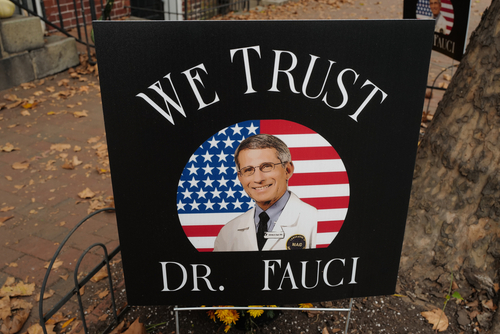
In recent discourse, a troubling revelation concerning the treatment of unvaccinated individuals has surfaced, bringing to light an issue that goes to the core of freedom and personal autonomy. The narrative around COVID-19 vaccinations has predominantly been one of communal responsibility and public health. However, the discourse often overlooks the nuanced implications for individual rights and ethical standards in healthcare.
Reports have emerged suggesting that certain sectors of society, including notable institutions which are highly regarded for their efforts in crucial times, might have adopted stances that many find concerning. These stances appear to equate to a form of discrimination against those who, for various reasons, have chosen not to receive the COVID-19 vaccine. It raises an alarm about the possible infringement on the rights of individuals to make personal health choices without facing detrimental repercussions or segregation.
Confirmed: The American Red Cross Lied and Unvaccinated Individuals are Unknowingly Receiving Vaccinated Blood, Along with the Spike Proteins it Carries
NOW— They want you to call in if you are vaccinated and want to donate..
IN 2021– the Red Cross said that the Covid Vaccines… pic.twitter.com/b9o4ELyPsi
— MJTruthUltra (@MJTruthUltra) February 22, 2024
The fervor with which institutions have encouraged vaccination is understandable in the context of a global health crisis. Vaccines have been an important tool in managing the spread of disease and alleviating the strain on healthcare systems. However, in the zealous push for collective immunization, there seems to be little room for dissent or for the acknowledgment of the right to personal discretion. The sanctity of personal freedom and the respect for individual choice is a cornerstone of conservative values, and it appears these principles are being sidelined.
Additionally, there is a palpable concern regarding the potential lasting consequences of this approach on civil liberties. When institutions apparently make distinctions between individuals based on their vaccination status, it posits a question: what other grounds might be deemed acceptable for discrimination in the future? Individuals find themselves at a crossroads, balancing the safeguarding of public health with preserving the liberties that define open societies.
🚨The American Red Cross is now asking blood donors if they ever received the Covid vaccine
If you answer Yes, they want you to call ahead to see if you’re still eligible
I thought the vax was “safe and effective”?
What info are they hiding from us? pic.twitter.com/xmEIaHE2gN
— DC_Draino (@DC_Draino) February 20, 2024
It’s also worth considering the effects such policies could have on community cohesion and trust in societal systems. The sense of solidarity and collective action, typically seen in times of crisis, risks being undermined when segments of the community are overtly or covertly marginalized. This rift not only affects societal fabric but could also lead to the erosion of trust in the institutions meant to serve and protect all members of society equally.
What seems to be absent from the conversation is a robust debate on how to address and respect valid concerns about the vaccine, including personal health issues, religious convictions, or skepticism based on rapid vaccine development. There is a significant portion of the population that is calling for greater transparency and respect for divergent views, underlining the need for policies that accommodate a range of perspectives while upholding principles of individual liberty.
The dilemma faced by many is not just a matter of personal health, but also of maintaining the delicate balance between individual freedoms and collective action. As such, any indication from trusted organizations that one group might be unfairly treated or considered less worthy of aid or service, based on private health decisions, should be met with scrutiny and open discussion.
The acknowledgement of a revelation such as the one recently brought to light should serve as a catalyst for a broader dialogue about these important issues. It is imperative that we protect the ideals that foster individual dignity and freedom, even while striving to promote public health. In a world increasingly defined by polarization, we must seek to bridge divides with understanding and uphold the values that respect personal autonomy.
As citizens evaluate the unfolding situation, they are encouraged to seek information from a variety of sources and engage in discussions with a spirit of respect and openness. It’s important to uphold the principles that allow for such discourse and decision-making autonomy as individuals navigate through complex health and ethical landscapes.










